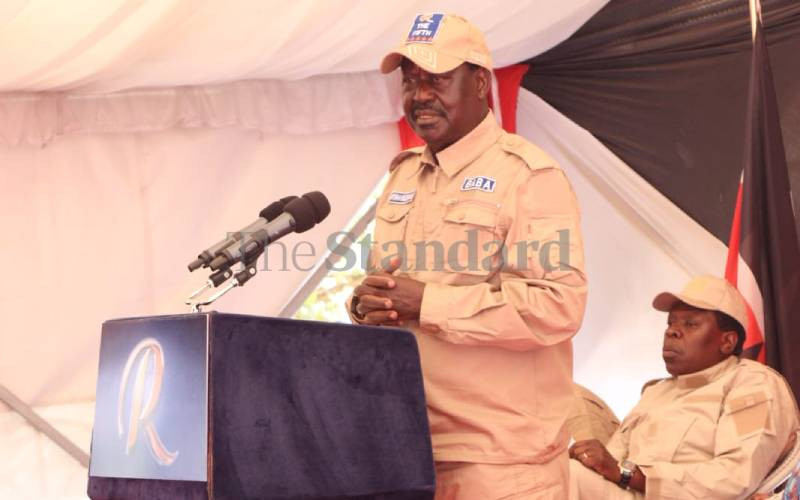×
The Standard e-Paper
Kenya’s Boldest Voice

Dressed in regalia that resembled full combat gear, Raila Odinga took the stage at Jaramogi Oginga Odinga Foundation offices in Upper Hill, Nairobi as Kenyans waited anxiously to hear what he had to say.
The Azimio leader had issued a 14-day ultimatum to President William Ruto to lower the cost of living, failure to which he'd lead the country in protests.